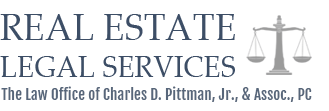What do You do if you inherit an Upside Down Property?
We often have clients ask us what to do with a deceased parent’s real estate that was “under water” or requires a short sale to be able to sell it. Is it worth the effort, time, and potentially a little money to short sell a deceased parent’s home?
There is no “one size fits all” answer to this question. One one hand, a child or an heir cannot “cherry pick” the parent’s estate! Creditors of the Estate know it can be difficult to collect money from the dead, but while they will often take discounts, they are unlikely to settle for nothing if the heirs are all suddenly increasing their standard of living.
Leaving aside the question for today of all of the purposes and responsibilities of probate or being a fiduciary under a trust for a parent, and focusing on the real estate aspects involved, these are a few considerations:
Starting with a hypothetical: Daughter inherits a house from mom when mom dies. House has no value or is even upside down. Daughter wants to just “walk away from it.”
Anyone who inherits a house might well be held responsible for ancillary expenses like taxes, weed liens, or demolition. But if the daughter has a different name from her mother and no probate was started, it may be hard for the City to figure out who to sue. If she is out of state, the chance of being sued goes way down.
The single biggest creditor of the parent’s estate is usually the mortgage company. If they foreclose on the “upside down property” and do not recover the entire amount due on their mortgage, they may attempt to recover “the deficiency” against someone personally. This would especially be true if the mortgage company’s lien were to be “wiped out” by a tax sale for unpaid real estate taxes on the property. Many city and county treasurers in Virginia have sped up their tax sale process significantly since the onset of the recession to help recover lost revenue. Even if there is no tax sale, but as is sometimes the case with elderly home owners, the house feel into extreme disrepair, the mortgage lender’s standard foreclosure might not yield even half of what is owed to them. If the daughter never took dominion over the house or received rent from it or lived in it as an adult most judges would rule for the daughter. So as a pure liability matter, the daughter doesn’t owe a penny of the mortgage. However, if the daughter did inherit the Picasso collection, 3 Rolls Royces, and other valuable property or investment accounts, the mortgage company might have up to two years from the date of death, or worse, two years from the date of probate, to sue to get back valuable inheritances from heirs because the estate should not be emptied of value until all of the estate’s debts are paid or compromised. This is why we do have some children of homeowners who invest the time and effort to go ahead and short sell a deceased parent’s home. If there is something they DO want to inherit from mom without holding their breath for 2 years that the bank won’t hire some collection attorneys to demand the return of enough money to pay off the mortgage, the wiser course of action may be to hire a realtor and an experienced short sale attorney and conduct a short sale of the house. If your daughter/friend wants or has taken absolutely nothing from her mother’s estate, walking away becomes a better option as to the liability for the mortgage.
If the mortgage deficiency is not a concern for daughter, then she still needs to evaluate whether the City, HOA (condo or homeowner’s association), etc., might know who the heirs of her mother were and that real estate is considered in an old common law doctrine in Virginia to “drop like a rock” into the heirs’ names at the time of death. If those creditors have a big enough loss, know who and where to find daughter and any siblings, and they are living in Virginia, they could still sue daughter. If the estate is very small and not worth protecting and inheriting, daughter may want to file a letter “disclaiming” her inheritance which defeats the “drop like a rock” doctrine. Disclaimers usually need to be filed within a year of death but 6 months is even better.
These considerations really only scratch the surface of all of the potential issues in deciding what to do with a parent’s upside down real estate when they die. An heir should learn all of their legal options and consider the consequences and rewards of those options!


